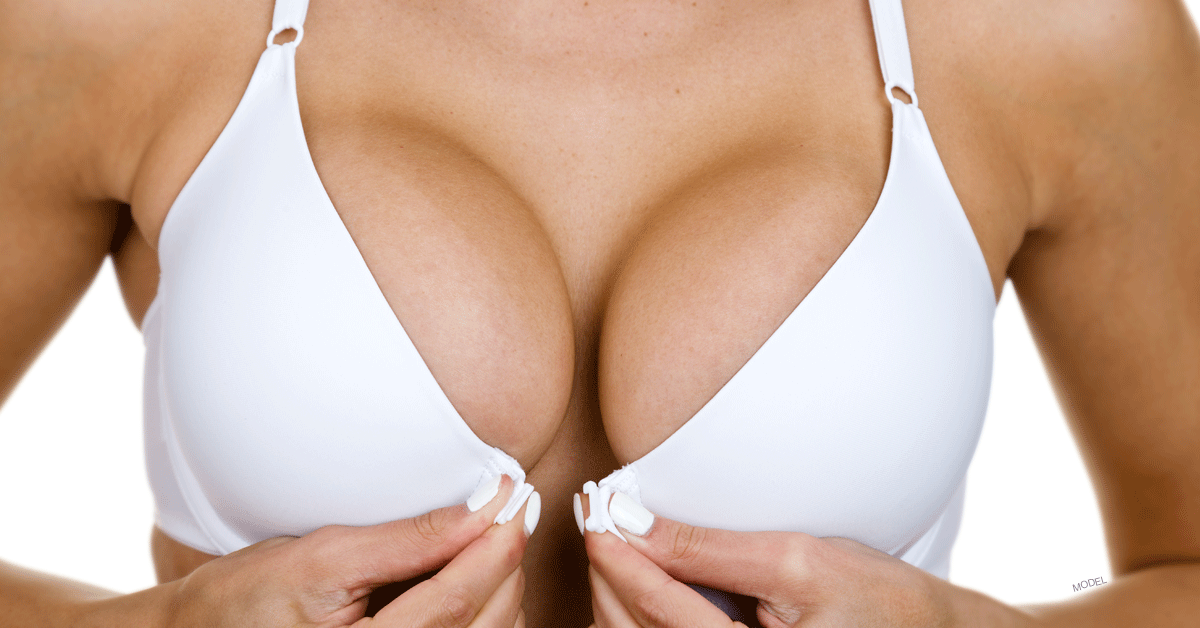Breast Questions
By: Iris F. Litt, MD
Why Do Girls’ Breasts Get Bigger?
 There are many factors that influence growth of breasts. These include nutrition and genetics, both because of hormone stimulation. Breast growth is one of the important things that happens during puberty. The pubertal hormones produced by the pituitary gland (located in the brain and responsible for producing a variety of hormones), play a critical role. One of the earliest signs that puberty has begun is enlargement of the breasts as a result of increased production of ovarian estrogen stimulated by these pituitary hormones. Boys also often experience breast enlargement during the early stages of their pubertal growth spurt, but their breasts usually shrink in size after one or two years. As long as estrogen continues to be secreted in females, breasts will grow and/or maintain their size. Breasts may also enlarge slightly in women taking birth control pills or, after menopause, estrogen-replacement pills. Naturally, breasts enlarge during pregnancy as a result of marked increase in estrogen secretion. Girls with poor diets and weight loss may notice that their breasts get smaller. If these girls improved their nutrition, their breasts would enlarge to their previous size.
There are many factors that influence growth of breasts. These include nutrition and genetics, both because of hormone stimulation. Breast growth is one of the important things that happens during puberty. The pubertal hormones produced by the pituitary gland (located in the brain and responsible for producing a variety of hormones), play a critical role. One of the earliest signs that puberty has begun is enlargement of the breasts as a result of increased production of ovarian estrogen stimulated by these pituitary hormones. Boys also often experience breast enlargement during the early stages of their pubertal growth spurt, but their breasts usually shrink in size after one or two years. As long as estrogen continues to be secreted in females, breasts will grow and/or maintain their size. Breasts may also enlarge slightly in women taking birth control pills or, after menopause, estrogen-replacement pills. Naturally, breasts enlarge during pregnancy as a result of marked increase in estrogen secretion. Girls with poor diets and weight loss may notice that their breasts get smaller. If these girls improved their nutrition, their breasts would enlarge to their previous size.
When Should A Girl’s Breasts Start Growing?
 Girls often worry when they notice that their friends’ breasts are enlarging and theirs are not. It is important to understand that there is a lot of variation in the normal timing of breast growth. For example, it is normal for breasts to start growing as early as nine years of age and it is also normal if they do not begin growing until 14 years of age. In general, a girl will experience breast growth within one year of the time her mother first noticed her own breasts growing (timing is even closer among sisters). It may be very interesting and helpful to discuss this with them. Most women remember how old they were when they first wore a bra, just as they remember their age at their first menstrual period. These two events are closely related with breast growth generally beginning about a year before menses. Because nutrition, exercise, and health (both physical and emotional) can all affect hormone levels, family history of timing of breast growth (and menses) provides only a rough guess about when it will actually begin. Another thing that girls should know about their breast growth is that it is not always the same for both breasts. This should not be cause for worry because there is usually catch-up by the time breasts are fully grown, which can take a few years. In many girls, however, one breast remains slightly larger than the other. This is rarely noticeable to anyone else!
Girls often worry when they notice that their friends’ breasts are enlarging and theirs are not. It is important to understand that there is a lot of variation in the normal timing of breast growth. For example, it is normal for breasts to start growing as early as nine years of age and it is also normal if they do not begin growing until 14 years of age. In general, a girl will experience breast growth within one year of the time her mother first noticed her own breasts growing (timing is even closer among sisters). It may be very interesting and helpful to discuss this with them. Most women remember how old they were when they first wore a bra, just as they remember their age at their first menstrual period. These two events are closely related with breast growth generally beginning about a year before menses. Because nutrition, exercise, and health (both physical and emotional) can all affect hormone levels, family history of timing of breast growth (and menses) provides only a rough guess about when it will actually begin. Another thing that girls should know about their breast growth is that it is not always the same for both breasts. This should not be cause for worry because there is usually catch-up by the time breasts are fully grown, which can take a few years. In many girls, however, one breast remains slightly larger than the other. This is rarely noticeable to anyone else!
How Big Should Breasts Be?
There is no good answer to this question, as we all come in different sizes. Some of us are tall and some short. Similarly, some girls have large, medium, or small breasts. Nonetheless, many girls are unhappy because they think their breasts are too small or too large. Attitudes about breast size are often influenced by fashions. In the Flapper days (1920s), it was considered desirable to have small breasts, as was the case in the l960s when fashion models began to look emaciated. With the arrival of the Wonder Bra, it again became fashionable to have larger breasts. From a health perspective, there is no ideal breast size. Breast size bears no relationship to breast cancer or ability to nurse an infant. There are surgical procedures available to increase or decrease the size of breasts. These are major operations and they should not be entered into without considerable thought and extensive information, as they have possible serious drawbacks and complications. Padded bras are safer alternatives for those who want their breasts to appear larger. Also remember that you have time on your side as breasts continue to grow, especially during puberty and pregnancy. Improving nutrition may also contribute to increased breast volume.
Can Teenage Girls Get Breast Cancer?
Yes, however, breast cancer is rare during adolescence. On the other hand, breast lumps are common at this time of life. This apparent contradiction is explained by the fact that teenagers often get cysts or tumors in their breasts that are not cancerous. These result from sensitivity to estrogen. Most of the time, these kinds of lumps will disappear on their own, but it is always a good idea to have them checked by a doctor. Some girls have many small nodules in their breasts, a condition that used to be called fibrocystic disease. This term is no longer used because of current awareness that it is not a disease, but a variation of normal. When a lump is found, doctors will usually wait up to three menstrual cycles before taking any action, as they most likely will disappear. Mammograms, which are x-rays of the breasts, are not generally helpful in teenagers. We encourage teenagers to learn and practice self-breast examination techniques so this will become a health habit by the time they reach their fifties when your chance of having breast cancer increases. Use of birth control pills does not increase the risk of breast cancer during adolescence and, in fact, has been shown to lower the risk of developing noncancerous breast tumors.
Is It Normal For There To Be Discharge Coming Out Of My Breasts?
The nipple is the exit point of numerous tiny ducts that lead from the interior of the breast where glands produce milk. Therefore, the most common discharge occurs when these glands are stimulated, as is true at the time of delivery of a baby. As long as sucking continues, milk will be produced and discharged through the nipple. Interestingly, vigorous rubbing of the nipple can also cause a discharge of milk. If the discharge is bloody or pus-like, it may indicate one of the rare serious conditions like an infection or tumor. Similarly, absence of menses associated with a nipple discharge may indicate a tumor of the pituitary gland or may result from certain medications. Obviously, a physician should be consulted whenever there is a nipple discharge in order to figure out its cause.
- If you have fibrocystic breasts or breast pain, read this…
- For more answers to breast questions, go there…
- See Puberty for more on that topic. For the growth charts there see:
- The Stages of Development of Puberty in Girls
- The Stages of Development of Puberty in Boys
- Please read about breast cancer and breast cancer screening.
- It can save your life or your mother’s life or someone else’s.
- Learn how to do a breast self-exam
- Helping Someone Diagnosed With Breast Cancer
- Breast Cancer and What You Eat
- Risks of Breast Cancer and Second Hand Smoke
- For more on your GYN health see GYN Stuff
For honest answers about your sexual health visit:
Some Web Resources:
- Susan G. Komen Breast Cancer Foundation
- The Breast Cancer Research Foundation
- American Cancer Society – Breast Cancer Awareness

